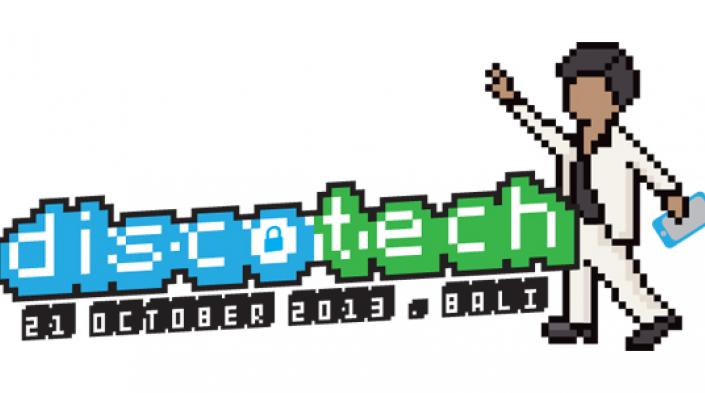
By Mallory Knodel Publisher: APCNews Montreal,
Published onPage last updated on
The IGF is a crucial meeting point for civil society. While the multi-stakeholder processes of the IGF itself will address the national and global state of privacy and security at the policy level, civil society must also act in parallel to protect human rights such as freedom of expression, association and the right to privacy. In light of the world’s recent awakening to global internet surveillance, the 2013 IGF is a particularly key event for discussing digital security.
The security of digital networks and information is becoming increasingly important to all internet users, be they from governments, the private sector or civil society. Incidences of governments and corporations spying on netizens and human rights defenders (HRDs) are increasing. Journalists, democracy activists, women human rights defenders (WHRDs) and sexual rights activists, who use ICTs to report on, and campaign against, human rights abuses face surveillance, censorship, information security vulnerabilities, and information security compromises that can be life threatening (Comninos 2013).
“Surveillance programmes have grown ever more aggressive,” said the UN Secretary General in a lecture on 28 August. Recent revelations of mass surveillance (such as the US National Security Agency’s) PRISM, a new, all-encompassing surveillance law in New Zealand, social media monitoring by the Pakistani government, and so on have confirmed the mass surveillance of innocent people. This escalation of state surveillance demonstrates the urgency of the need to raise awareness and build capacity to respond in an effective manner to such threats to human rights online, which is the primary goal of an event called the “Disco-tech” at the 2013 IGF.
A recent statement from the Riseup collective explains the political moment clearly: “Those who imagine a government can be trusted to police itself when given the ominous power of precise insight into the inner workings of everyday life are betting the future on the ability of a secretive government to show proper self-restraint in the use of their ever-expanding power. If history has shown us anything, it is that the powerful will always use their full power unless they are forced to stop.” In proposing how to respond to this, Riseup’s conclusion is that “… our best hope of stopping the technology of surveillance is the technology of encryption.”
Therefore, on the night before the global IGF in Bali, 21 October 2013, the Association for Progressive Communications (APC) and Tactical Technology Collective (TTC) are hosting an evening, peer-learning event on human rights to privacy and anonymity and what solutions exist to protect those rights. “We’re calling it the Disco-tech,” said TTC organiser Gillo Cutrupi, “because the format of the event will be very unique. Participants can learn about technological solutions in an inspiring and relaxed yet high-energy atmosphere.”
Disco-tech is designed to raise awareness of online security (and insecurity) in a comfortable and stimulating peer-learning environment. A series of five to six short “lightning talks” will be presented by experts and activists covering tools and experiences with online surveillance, safety, security from the perspective of the rights to online privacy and anonymity. Participants will have the opportunity to set up stations to share technological tools, information or discuss specific issues. A “key signing party” and an introduction to encryption will be held in parallel.
The evening’s discussions will encourage cross-regional networking among techies, human rights defenders and rights activists to share strategies and technical advice and support.
Speakers
- Shahzad Ahmad, Bytes for All Pakistan
- Ellery Biddle, Global Voices
- Julian Casasbuenas, Colnodo
- Sarah Clarke, Pen International
- Alex Comninos
- Mahmood Enayat, Small Media Foundation
- Andrew Garton
- Robert Guerra, Citizen Lab
- Gerard Harris, Deflect/eQualit.ie
- Octavia Jonsdottir, IREX
- Nadine Moawad, APC
- M. Chris Riley, Mozilla
- Bobby Soriano, Tactical Tech
Event details
Date/time: 19:00 – 22:00 Monday, 21 October 2013
Venue: Mantra Nusa Dua ballroom
Food: Light snacks and drinks
RSVP: mallory@apc.org, gillo@tacticaltech.org
About APC and about TTC
APC – www.apc.org – is an international network and non-profit organisation founded in 1990 that wants everyone to have access to a free and open internet to improve lives and create a more just world.
Tactical Tech – www.tacticaltech.org – is an organisation dedicated to the use of information in activism. They focus on the use of data, design and technology in campaigning through their Evidence & Action programme and on helping activists understand and manage their digital security and privacy risks through their Privacy & Expression programme.
See also:
Deflect’s press release: https://wiki.deflect.ca/wiki/Press_Release_15/10/13
Supported by Swedish International Development Cooperation Agency (Sida), Web We Want small grants and .NZ Domain Name Commission.


